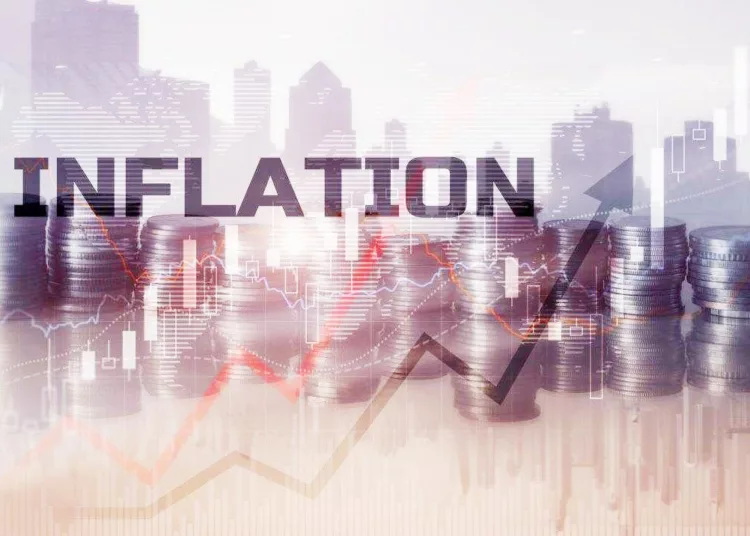In the dynamic landscape of Nigeria’s economy, where inflation can swiftly erode the value of savings and investments, savvy individuals employ strategic measures to shield their financial assets from the relentless grasp of rising prices.
Amidst the tumultuous tide of inflation, one prudent approach is to diversify one’s portfolio across various asset classes. This diversification acts as a bulwark, ensuring that the impact of inflation on any single investment is mitigated by gains in others. From real estate to stocks, bonds to commodities, the astute investor spreads their wealth across a spectrum of assets, each with its resilience to inflationary pressures.
Buttressing the point, the chief executive of the Center for the Promotion of Private Enterprise, Dr. Muda Yusuf, noted that the naira is no longer serving as a store of value, which is one of the characteristics of money. He cited that fewer and fewer people are storing their wealth in naira, which is contributing to the dollarisation of the economy.
He said many people are now storing their wealth in dollars, stocks, and gold, while other people are buying property just to preserve their wealth. He noted that the implication is that fewer people are inclined to store their wealth in naira.
Yet, beyond traditional avenues, the discerning investor may cast their gaze towards the horizon of innovation. As suggested by Dr. Simon Nwaogwugwu, an economic affairs analyst, cryptocurrencies, with their decentralised nature and limited supply, beckon as a hedge against inflation’s onslaught. “Though volatile, these digital assets offer a refuge for those seeking to navigate the uncertain waters of Nigeria’s economic landscape,” he stated.
He also called for continued vigilance on the part of investors. “Regular review and adjustment of investment strategies become indispensable in safeguarding against the erosive forces of inflation. It is through this vigilant stewardship that the investor fortifies their financial fortress, ensuring its resilience against the relentless march of rising prices.
“Moreover, the entrepreneurial spirit finds solace in the creation of businesses or investment in ventures with pricing power. In commerce, where the ability to adjust prices mirrors the ebb and flow of inflation, lies a potent antidote to its corrosive effects. From small enterprises to corporate giants, businesses possess the agility to adapt, thereby insulating their value against the ravages of inflation,” he said.
Commenting, also Professor Tayo Bello of Adeleke University noted that due to the evolving lack of confidence in the value of the local currency, Nigerians have resorted to storing their wealth in foreign currencies that are more stable. Besides, according to Bello, there is hardly enough to save as inflation is eroding people’s wealth daily.
An economic affairs analyst, Dr. Samuel Olaleye, also commenting, said the erosion of the value of the naira presents a significant disincentive for savings among citizens, exacerbating financial insecurity and undermining long-term economic stability. He stated that as the purchasing power of the naira declines due to inflation and currency depreciation, individuals find their savings eroded over time, leading to a loss of confidence in traditional savings mechanisms.
He said in a time like this, wisdom dictates that investors put their money in assets that have proved to be durable in value over time. He suggested investing in gold, landed properties, and other assets that appreciate in tandem with inflation.
Speaking about hedging on food inflation, a financial economist at CashLinks Limited, Dr. David Echekoba, said community cohesion breathes life into the pursuit of affordable foodstuffs, as neighbours unite in solidarity to leverage collective strength. He noted that through cooperative efforts and shared resources, communities forge bonds that transcend mere transactions, pooling their purchasing power to secure bulk discounts and negotiate favourable terms with suppliers. He said such communities stand as a testament to the power of communal resilience, ensuring that no household goes hungry amidst the challenges of economic uncertainty.
Echekoba said bulk buying is a cornerstone of thriftiness in the pursuit of affordable provisions. He stressed that consumers can navigate the labyrinth of markets, seeking out vendors who offer discounts for larger purchases.
Hillary Okorie, a financial economist at MoneyBag Limited, said seasonal wisdom reigns supreme in the realm of food procurement. He said with a keen eye on nature’s cycles, astute shoppers harness the bounty of harvest seasons when the land overflows with plenty. “It is during these periods of abundance that maize, yam, cassava, and other staples adorn the markets in abundance, their prices dip low by the weight of surplus. In sync with the rhythm of the earth, shoppers seize the opportune moment, stocking their store rooms with cheap foodstuffs to weather leaner times ahead,” he said.
He added that in the digital age, technology has become a catalyst for change in the landscape of food procurement. “Online platforms and mobile applications offer a gateway to convenience and accessibility, enabling consumers to browse, compare, and purchase heap foodstuffs with the tap of a finger. From virtual marketplaces to agricultural e-commerce hubs, the digital realm opens doors to a world of opportunities, empowering shoppers to navigate the market landscape with ease and efficiency,” Okorie stated.
NATIONAL ECONOMY notes that in the mosaic of Nigeria’s culinary tapestry, the quest for cheap foodstuffs transcends mere sustenance, becoming a testament to ingenuity, resilience, and resourcefulness. Through the intricate interplay of tradition and innovation, community and commerce, shoppers navigate the labyrinth of markets with determination, ensuring that the table is adorned with abundance, and the spirit nourished by the fruits of their labor.
















Between Depleting Workforce And Declining Productivity